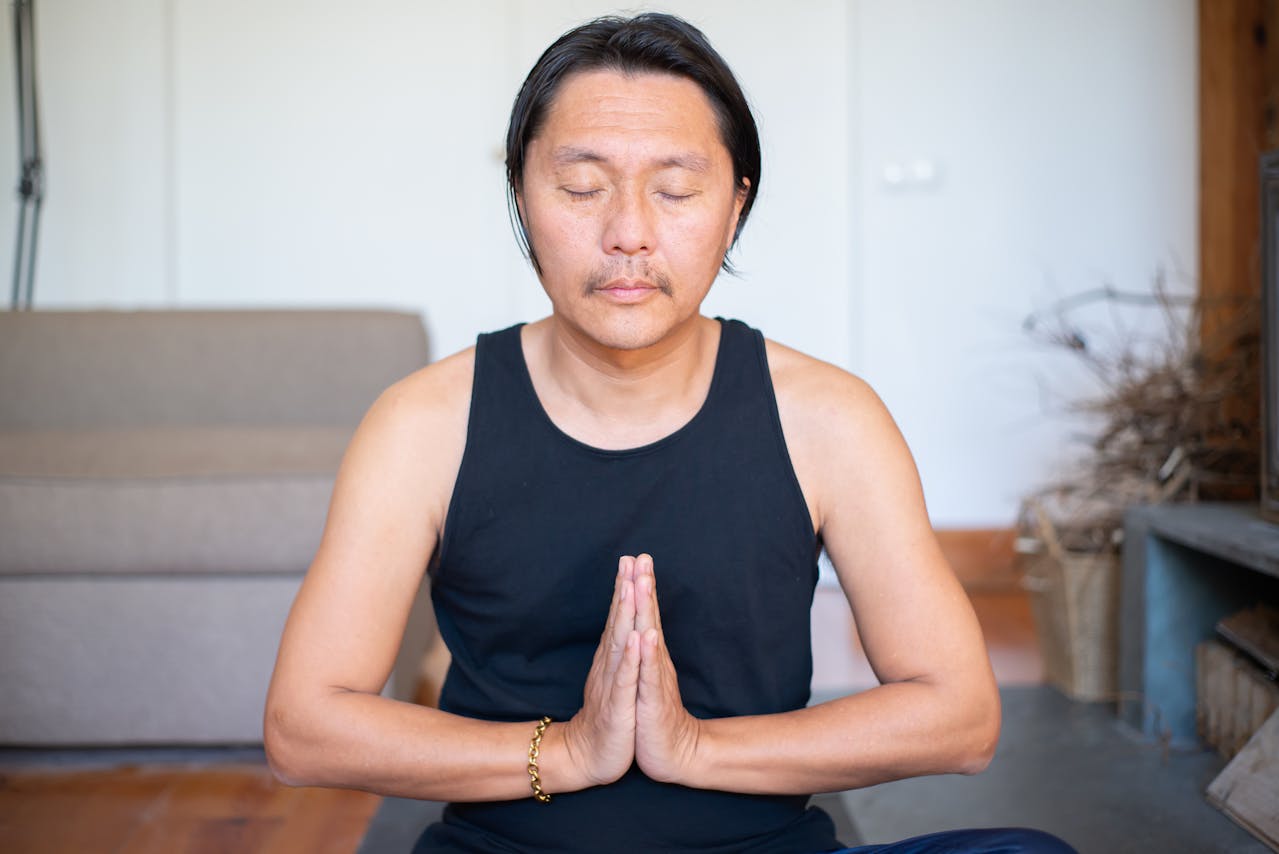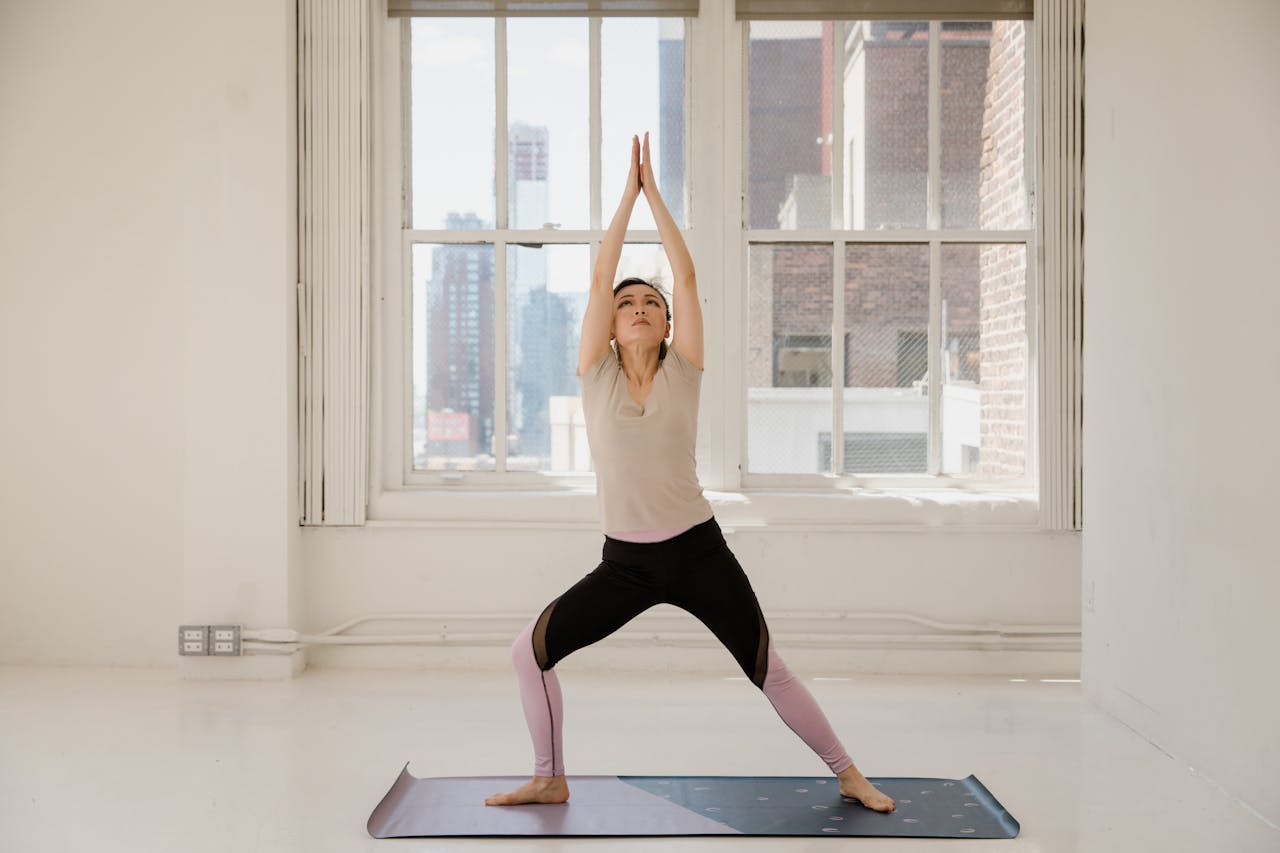How daily yoga practice can transform your mental and physical health
Practicing yoga daily offers numerous benefits for your mind, body, and soul. Discover how it can improve mental focus, flexibility, and overall health.
The value of exercise for our health is undeniable, but when you combine physical movement with mental and spiritual practices, you get something even more powerful - yoga.
For example, in a Harvard study, 65 adults dealing with depression were observed. Some participated in 90-minute hot yoga sessions twice a week, while others were simply put on a waiting list.
After just 8 weeks, those who practiced yoga reported a noticeable drop in depressive symptoms. In fact, 60% experienced a 50% improvement, compared to only 6% in the non-yoga group.
Yoga does more than just build strength and flexibility. It’s a holistic wellness tool. It supports heart health, clears the mind, reduces stress, relieves pain, and can even help ease symptoms of chronic illnesses.

Source: Pexels
What Is yoga?
Yoga is a practice that helps connect your body and mind. It comes from northern India and has been around for over 5000 years. It’s not just about movement (asana). Yoga is also about mindfulness, breathing (pranayama), and meditation.
The name comes from the Sanskrit word "yuj", which means to unite. It’s about connecting (uniting) the pieces of ourselves that feel scattered and disconnected. By finding that unity with our thoughts, our bodies, and emotions, we learn to just ‘be’. And we can move through life with more presence and awareness. Through this connection, we learn to simply be, navigating life with greater presence and clarity.
The physical benefits of practicing yoga
Doing yoga every day can do wonders to your physical health. Here are just a few ways it can support your body:
Yoga can improve your flexibility
You don’t need to be flexible to start yoga; flexibility is something you gain along the way.
If you sit for long periods or don’t move your body often, stiffness can creep in. Yoga gently loosens tight muscles and connective tissue, gradually increasing your range of motion. And it’s not just practical it helps you feel more at ease in your own body.
It can strengthen your muscles
Yoga may look simple, but it requires some serious strength. Holding your body weight isn’t as easy as you may think.
Unlike lifting heavy weights, yoga strengthens your muscles with minimal strain on your joints, making it a safer, sustainable way to build power and endurance.
It can improve your posture
Poor posture isn’t just about how you look. It can contribute to neck and shoulder tension, back pain, and overall fatigue.
Yoga helps by activating and strengthening the muscles that support proper alignment. The best part? It’s not about “fixing” your posture. With regular practice, your body naturally remembers how to stand tall and take up space - leading to better posture, less discomfort, and even a quiet boost in confidence.
Yoga is great for heart health
Practicing yoga - especially gentle styles like Hatha or Yin - can do wonders for your heart. These practices activate your parasympathetic nervous system, the part responsible for rest, recovery, and relaxation.
With regular yoga, you can expect to:
- Reduce your blood pressure
- Lower your heart rate
- Calm your nervous system down
The more consistently you practice, the more familiar your body becomes with this calm state. Over time, it becomes easier to access that peaceful feeling, both on and off the mat.
It improves circulation
When you do yoga, you’re combining movement and breath. This gets your blood flowing. Also, in a lot of poses, you compress and release different parts of your body. That helps bring in oxygen-rich blood to your brain, and your lymphatic system functions better (which is great for immunity).

Source: Pexels
How practicing yoga can benefit your mental health
Incorporating yoga into your daily routine doesn’t just strengthen your body - t also nourishes your mind. Here’s how consistent practice can support your mental well-being:
It can train your brain
Here’s the thing. While you’re doing yoga, your brain cells are creating new connections. This causes changes in the structure and function of your brain. Then, your cognitive skills (like memory and learning) improve.
Over time, yoga can enhance cognitive abilities like memory, learning, and focus. You may find it easier to concentrate, think clearly, and make decisions. Plus, when your stress levels drop, that brain fog lifts, making space for mental clarity to shine through.
Yoga can help with emotional regulation
Let’s face it: life will always come with its share of challenges. But yoga can shift the way you respond to them.
By regularly activating your parasympathetic nervous system, yoga helps your body get used to a state of calm. The more you practice, the more natural it becomes to return to this grounded place, especially when life gets messy.
Yoga also teaches you to breathe through discomfort and stay present, even when things aren’t easy. Eventually, this presence becomes second nature, guiding how you respond to stress without even realizing it. That’s one of the quiet, transformative powers of yoga.

Source: Pexels
It can help you sleep better
Sleep is essential to your health, but not all sleep is created equal. Ever wake up after a full night's rest and still feel exhausted? That might be because your brain was stuck in high beta mode - the brainwave state associated with alertness and activity.
While beta waves help focus during the day, they need to give way to slower waves, alpha, theta, and delta for deep, restorative sleep. Yoga encourages this transition, training your brain to slow down and unwind.
The result? Better quality rest, and a body and mind that actually feel refreshed in the morning.
Read more: Yoga for mental health: 5 key benefits & how to start yoga
What types of yoga are there?
Did we convince you to give yoga a try?
Before jumping into the different styles, it’s helpful to know that how you practice matters just as much as what you practice.
For instance, setting a consistent time of day for your sessions, learning to breathe with awareness, or choosing a style that matches your energy level can make a big difference.
These are just a few ways to deepen your yoga experience - You’ll find more simple, practical tips to read more here.
Now, here are some common types of yoga you might want to start with:
Hatha yoga
Hatha yoga is slower. You usually hold poses for a bit longer, which allows you to really connect with your body. You get to do a lot of breathing exercises (pranayama). They are very good for reducing stress and increasing focus.
It’s a great choice for beginners and people who want to have a chill and calming exercise. Hatha yoga can help you bring awareness to your body, become more relaxed and present, and feel more grounded.
Vinyasa yoga
Vinyasa yoga is dynamic and flowing. Movements are linked smoothly together with your breath, creating a rhythm that feels like a moving meditation.
It’s great for people with a sense of rhythm who want more active exercise, it builds strength, improves balance, and gives your cardiovascular system a healthy boost - all while keeping you grounded in mindful movement.
Restorative yoga
Restorative yoga is all about deep rest and recovery. Using props like blankets and blocks, you support your body in comfortable poses held for several minutes, sometimes up to 15.
This practice soothes your nervous system, lowers stress hormones like cortisol, and invites your body into a state of deep healing. It's a wonderful choice if you're feeling burned out or emotionally drained.
Somatic yoga
Somatic yoga blends traditional yoga with somatic movement: gentle, mindful motions that focus on how your body feels rather than how it looks.
Movements are slow and subtle, designed to release chronic tension and reconnect you with your body’s inner rhythms. It’s especially supportive for those navigating anxiety, trauma, or persistent stress. It also helps improve posture and overall body awareness.
Feeling ready to give yoga a try?
Daily yoga practice can help your mind and body connect and feel more at peace. It’s a great way to improve your mental health and strengthen your nervous system and your body.
Remember, this change won’t happen overnight. But if you give yoga the space to become part of your routine, you’ll likely find yourself feeling more present, more in tune with your body, and noticeably calmer.
Read next: How yoga can help you lose weight

